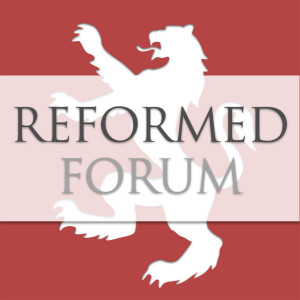
Man's Freedom within the Sovereign Plan of God
 2017-04-20
2017-04-20
Today we welcome Daniel Ragusa, to speak about the Westminster Standards and their teaching of the self-sufficient and self-contained triune God of Scripture. Ragusa begins with Westminster Confession of Faith 3.1:
God, from all eternity, did, by the most wise and holy counsel of his own will, freely, and unchangeably ordain whatsoever comes to pass: yet so, as thereby neither is God the author of sin, nor is violence offered to the will of the creatures; nor is the liberty or contingency of second causes taken away, but rather established.
In developing this doctrine, Ragusa draws upon Cornelius Van Til's Trinitarian theology, covenant theology, and representational principle. Ragusa writes,
According to Van Til's representational principle, for man's will to operate and for an act of his will to be significant and meaningful it must take place within an exhaustively personal environment, that is, it must take place within the sovereign and eternal plan of the self-sufficient triune God. The absolute freedom of God does not take away or limit man's freedom, but rather establishes it in an analogical fashion.
More Episodes
Create your
podcast in
minutes
- Full-featured podcast site
- Unlimited storage and bandwidth
- Comprehensive podcast stats
- Distribute to Apple Podcasts, Spotify, and more
- Make money with your podcast
It is Free
- Privacy Policy
- Cookie Policy
- Terms of Use
- Consent Preferences
- Copyright © 2015-2024 Podbean.com




